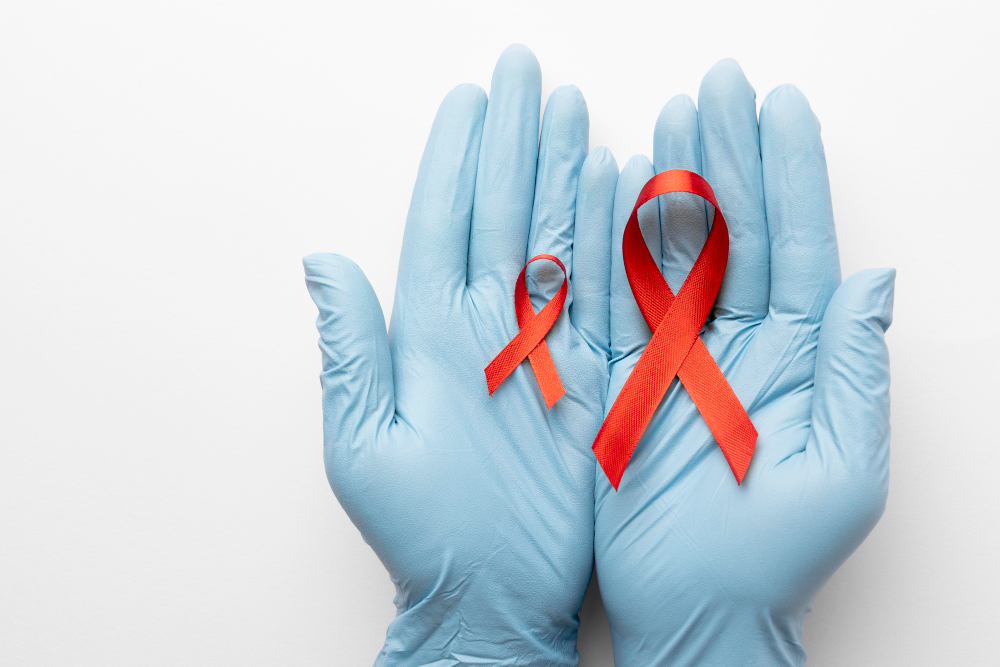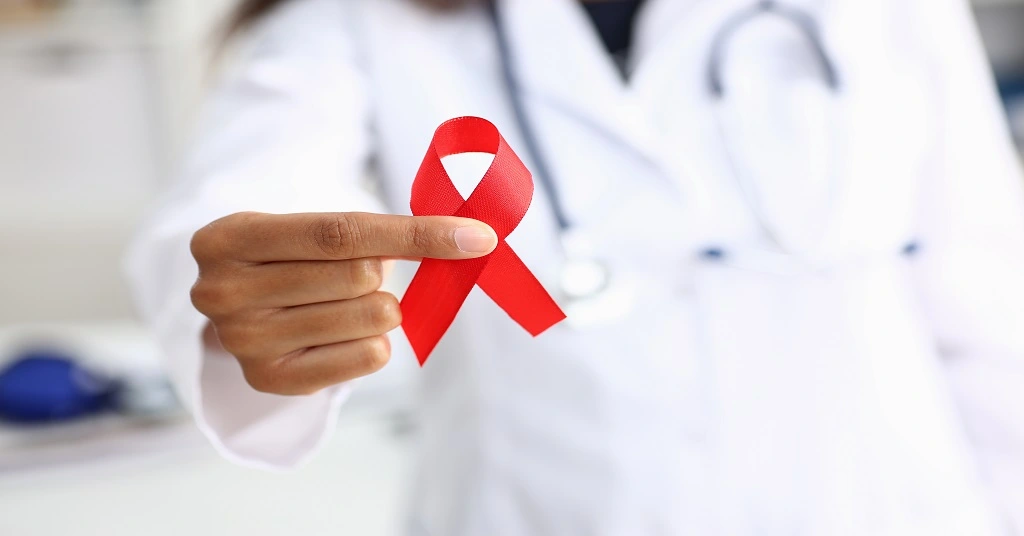While living with human immunodeficiency virus (HIV), is no longer a death sentence in this day and age, preventing it is essential for protecting your health and the well-being of your community.
Here are all the strategies that you can do to prevent HIV.
What is HIV?
HIV, or human immunodeficiency virus, is a virus that targets your body’s defense mechanism, particularly by attacking your CD4 cells. Also knownas T cells, these cells play a crucial role in detecting and combating harmful pathogens.
When HIV enters the body, it invades these cells, using them to replicate itself and, in the process, destroying them. Over time, the loss of CD4 cells weakens the immune system, making it increasingly difficult for the body to fight off the following:
- Infections
- Illnesses
- Certain cancers
Without treatment, HIV gradually progresses through different stages. Initially, the virus may cause flu-like symptoms, but as it advances, it can remain asymptomatic for years while silently damaging the immune system. If left untreated, HIV can lead to acquired immunodeficiency syndrome (AIDS), which is the most severe stage of the infection. At this stage, your immune system is severely weakened and unable to defend the body against opportunistic infections and diseases that pose serious and life-threatening risks.

How is HIV transmitted?
You can get HIV through the exchange of certain body fluids from an infected person. These include:
- Blood
- Semen
- Vaginal and rectal fluids
- Breast milk
Here’s a closer look at each method of HIV transmission.
Through unprotected sexual activities
HIV can spread during unprotected sex, including:
- Vaginal sex
- Anal sex
- Oral sex
The virus is present in the semen, vaginal, or rectal fluids of an infected sexual partner and can enter your body through mucous membranes or tiny tears in the tissue that may occur during sexual activity. Anal sex poses the highest risk, followed by vaginal sex, while the risk from oral sex is much lower but still possible.
By sharing needles or syringes
Sharing needles or syringes with someone who has HIV is a direct way for the virus to enter the bloodstream. This is particularly a concern among those who use intravenous drugs.
From mother to child during pregnancy, birth, or breastfeeding
During pregnancy, the virus may cross the placenta and infect the baby. It can also be transmitted during the delivery process or through breast milk after birth.
Through blood transfusions and organ transplants
Although rare in many countries due to strict screening processes, HIV can be transmitted through transfusions of infected blood or transplantation of infected organs. Advances in medical testing and safety protocols have made this route of transmission extremely uncommon, but it remains a consideration in areas where blood or organ screening is less stringent.
That said, HIV cannot be transmitted through everyday casual contact, such as:
- Hugging
- Shaking hands
- Sharing utensils
- Sharing toilet facilities
Why is preventing HIV important?
The advantages of prioritizing HIV prevention include:
- Protection of public health
- Reduction of healthcare costs
- Creation of a more equitable society
It involves not only stopping the spread of the virus but also addressing the broader impacts HIV has on health, society and the economy.
1. To control the spread of the virus
Preventing the transmission of HIV is critical to reducing the number of new infections and controlling its prevalence in communities. Effective prevention strategies help in creating safer environments where fewer people are at risk of contracting HIV.
2. To reduce morbidity and mortality
Prevention directly reduces the number of people affected by HIV-related illnesses and deaths. When fewer people contract the virus, there are fewer HIV cases progressing to AIDS, and fewer people suffer from the complications associated with the virus.
3. To decrease the economic impact on healthcare systems
Long-term care and treatment for those living with HIV or AIDS require substantial resources, including:
- Medication
- Frequent doctor visits
- Hospital care
Reducing the number of infections means fewer people require these services, which eases the financial strain on healthcare providers and governments. These savings can then be redirected to other critical health and social programs.
How can you avoid HIV transmission?
Here are simple strategies to protect yourself from HIV transmission and protect those around you.
1. Practice safe sex.
Condoms act as a protective barrier that prevents HIV from passing through bodily fluids. Always use condoms during sexual activities, whether it’s:
- Vaginal sex
- Anal sex
- Oral sex
2. Use clean and sterile needles.
If you’re getting a tattoo, piercing or need an injection, see to it that the needles are clean and sterile. Sharing or reusing needles can expose you to HIV through infected blood. Whether for medical use or cosmetic procedures, insist on new or properly sterilized equipment to stay safe.
3. Get tested regularly with your partner.
Knowing your status allows you to make informed decisions, such as using condoms or starting pre-exposure prophylaxis (PrEP) for added protection. Testing also strengthens trust and open communication in your relationships.
What should you do if you’re exposed to HIV?
If you suspect you’ve been exposed to HIV, acting quickly can significantly reduce your risk of infection. Here are three things that you need to do next.
1. Seek immediate medical advice within 72 hours.
At this stage, time is critical. Visit a healthcare provider or an emergency clinic immediately toget a proper assessment of your risk and access to the best course of action. The sooner you seek help, the higher the chance of stopping the virus from taking hold.
2. Start post-exposure prophylaxis (PEP) treatment.
PEP is a treatment that involves taking antiretroviral medicines for 28 days to prevent HIV infection after exposure. It is most effective when initiated as soon as possible, preferably within hours of exposure, as its effectiveness decreases with delays. Follow your healthcare provider’s instructions carefully and complete the full 28-day course.
3. Get tested at recommended intervals.
After starting PEP, get tested for HIV at specific intervals (such as 4-6 weeks and 3 months after exposure) to confirm your status. Your healthcare provider will guide you through the testing process to ensure accurate results.
How does HIV contribute to additional health complications?
As HIV weakens your immune system, you become more susceptible to a range of opportunistic infections, coinfections, and other health complications that would not affect those with healthy immune defenses.
Opportunistic infections that take advantage of the compromised immune system include:
- Tuberculosis
- Specific types of pneumonia
- Fungal infections
Coinfections, such as hepatitis B and C, are also more frequent and pose greater risks to people with HIV, as the weakened immune system struggles to manage these additional infections.
Beyond infections, HIV also increases the risk of conditions like cardiovascular disease and certain cancers by impairing the body’s ability to manage inflammation and fight abnormal cell growth.
If you have HIV, how can you prevent passing it to others?
If you are living with HIV, you can take several important steps to prevent transmitting the virus to others, such as:
- Adhering to antiretroviral therapy (ART)
- Using condoms during all sexual activities
- Disclosing your HIV status to potential sexual partners
- Engaging closely with healthcare providers, especially if pregnant or considering pregnancy
Frequently asked questions
What are effective ways to prevent HIV transmission?
Effective prevention methods include using condoms during sexual intercourse, taking pre-exposure prophylaxis (PrEP) if at high risk, and avoiding the sharing of needles or syringes.
Can regular HIV testing help in preventing HIV spread?
Yes, regular HIV testing ensures early detection, which can lead to timely treatment and reduce the risk of spreading the virus to others.
Is it possible to prevent mother-to-child transmission of HIV?
Prevention is possible through antiretroviral therapy during pregnancy, delivery, and breastfeeding. Doing so significantly reduces the risk of transmitting HIV to the baby.
How does substance abuse relate to HIV prevention?
Substance abuse can increase risky behaviors, such as sharing needles or having unprotected sex, which raises the risk of HIV infection. Seeking treatment for substance abuse can aid in prevention.
Key takeaway
Aside from protecting your health, preventing HIV is also about protecting those around you and contributing to a healthier community.
By practicing safe behaviors like using condoms, avoiding needle sharing, and getting tested regularly, you take proactive steps to reduce the spread of the virus.
For quick and reliable results, check out the HIV test kit selection from our shop here.




















































